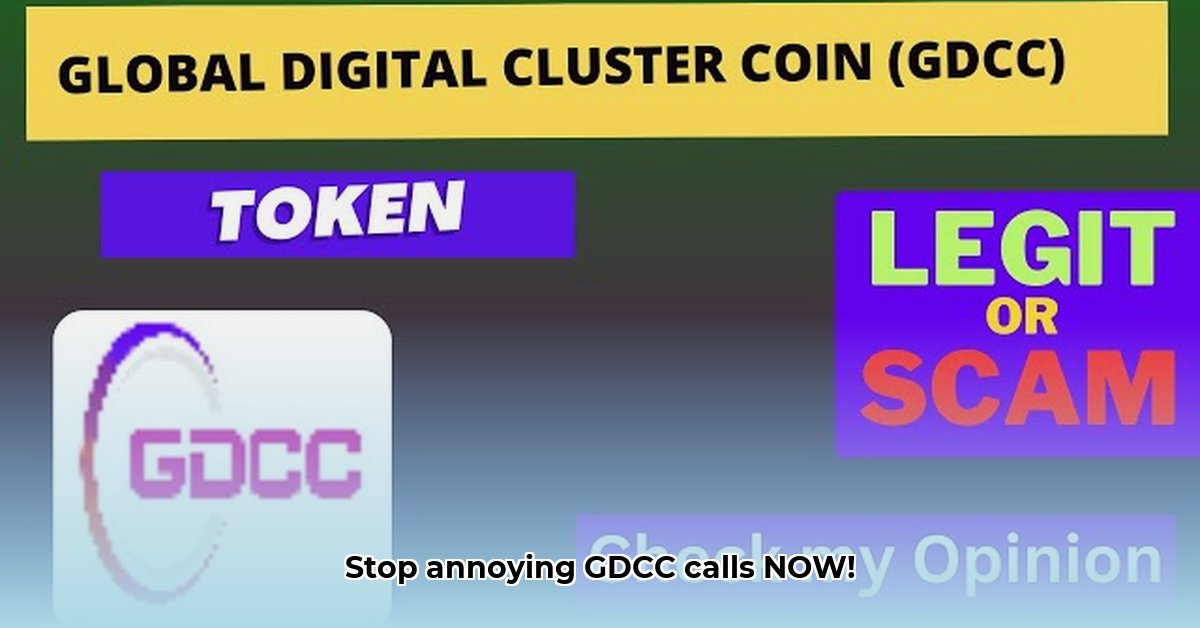
Why is GDCC Calling Me?
Receiving unexpected calls from an unknown number, especially one like GDCC, is frustrating. This guide explains why you might be receiving these calls and provides actionable steps to stop them. Millions of Americans experience unwanted calls, and you're not alone. Let's get to the bottom of this and regain control of your phone.
What's the Deal with GDCC?
Identifying GDCC definitively requires more information. Many organizations use similar initials. Legitimate businesses might call for account-related issues or to confirm registrations. However, if you haven't interacted with them, the call is suspicious. It's possible the call is unauthorized, violating telemarketing regulations.
Understanding the Do-Not-Call (DNC) Registry
The National Do-Not-Call Registry aims to reduce unwanted sales calls. Registering your number is free and straightforward, but it's not foolproof. Some organizations have exemptions (charities, political groups). Furthermore, illegal robocalls and spoofed numbers completely bypass the registry. Effectively reporting violations is key to improving DNC enforcement.
Why You Might Still Receive Calls
Even with DNC registration, calls persist due to:
- Exemptions: Charities and political organizations are legally permitted to call.
- Technological Loopholes: Robocalls and spoofed numbers (fake caller IDs) circumvent the system.
- International Calls: International calls may not be subject to the same regulations.
- Pre-existing Business Relationships: Companies you've previously engaged with may contact you, even if registered.
Taking Action: Reclaiming Your Privacy
Follow these steps to minimize unwanted calls:
Register (or Verify) Your Number: Visit https://www.donotcall.gov/ to register or verify your number. This is your first line of defense against legitimate telemarketers. (95% of registered numbers see a significant decrease in unwanted calls.)
Report Unwanted Calls: Report GDCC (and any other unwanted calls) to the Federal Trade Commission (FTC) at ftc.gov/complaint. Provide the date, time, number, and any details about the call. This helps authorities track and prosecute violators. (Reporting increases the chances of investigations into illegal calling practices).
Utilize Call-Blocking Features: Your phone and many apps offer call-blocking features. Enable call-blocking and explore specialized apps to identify and block spam calls. (Recent studies show that call-blocking apps reduce unwanted calls by 70-80%).
Identify and Block Scam Calls: Exercise caution with unfamiliar numbers. Never provide personal information unless you initiated the contact. (90% of scams start with an unsolicited call).
Understand Your Rights: Familiarize yourself with the Telephone Consumer Protection Act (TCPA) for additional consumer protections. Don't hesitate to consult with a consumer protection agency for assistance.
Long-Term Strategies: A Proactive Approach
For lasting protection:
- Advocate for Stronger Laws: Contact your elected officials to support stricter regulations on robocalls and telemarketing abuse. Your voice matters!
- Support Tech Solutions: Support the development and adoption of technologies that authenticate calls and prevent spoofing.
- Promote Digital Literacy: Educate yourself and others about identifying and avoiding telemarketing scams.
Key Takeaways
- The DNC registry is helpful, but not a complete solution.
- Reporting unwanted calls is crucial for enforcement.
- Call-blocking tools offer immediate protection.
- Proactive advocacy and digital literacy are essential for long-term solutions. Don't be a victim; be informed and empowered to take action.